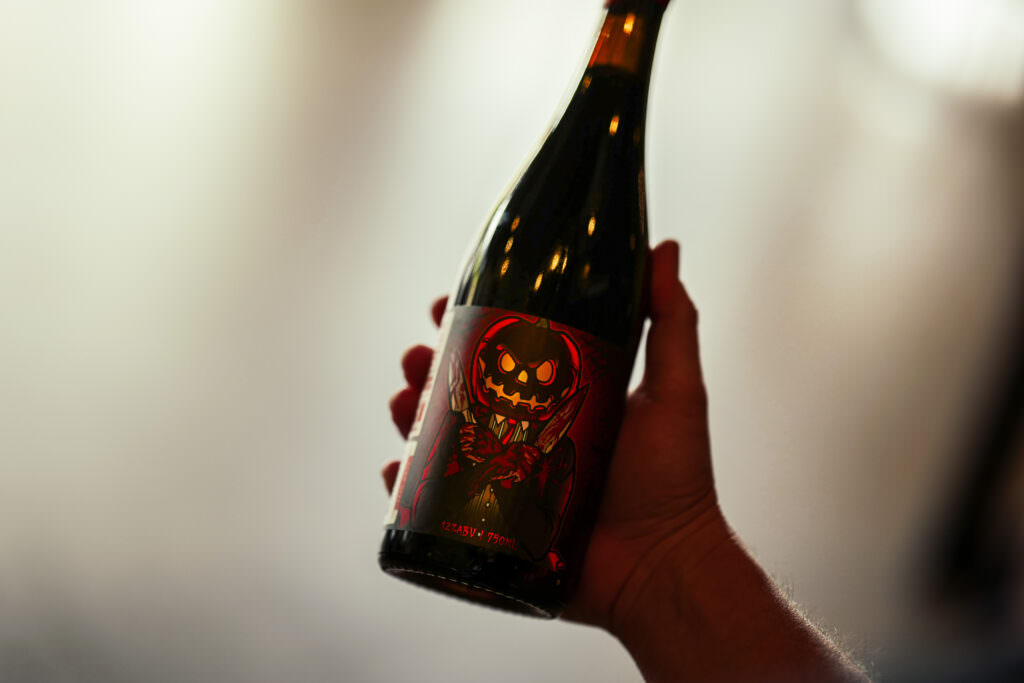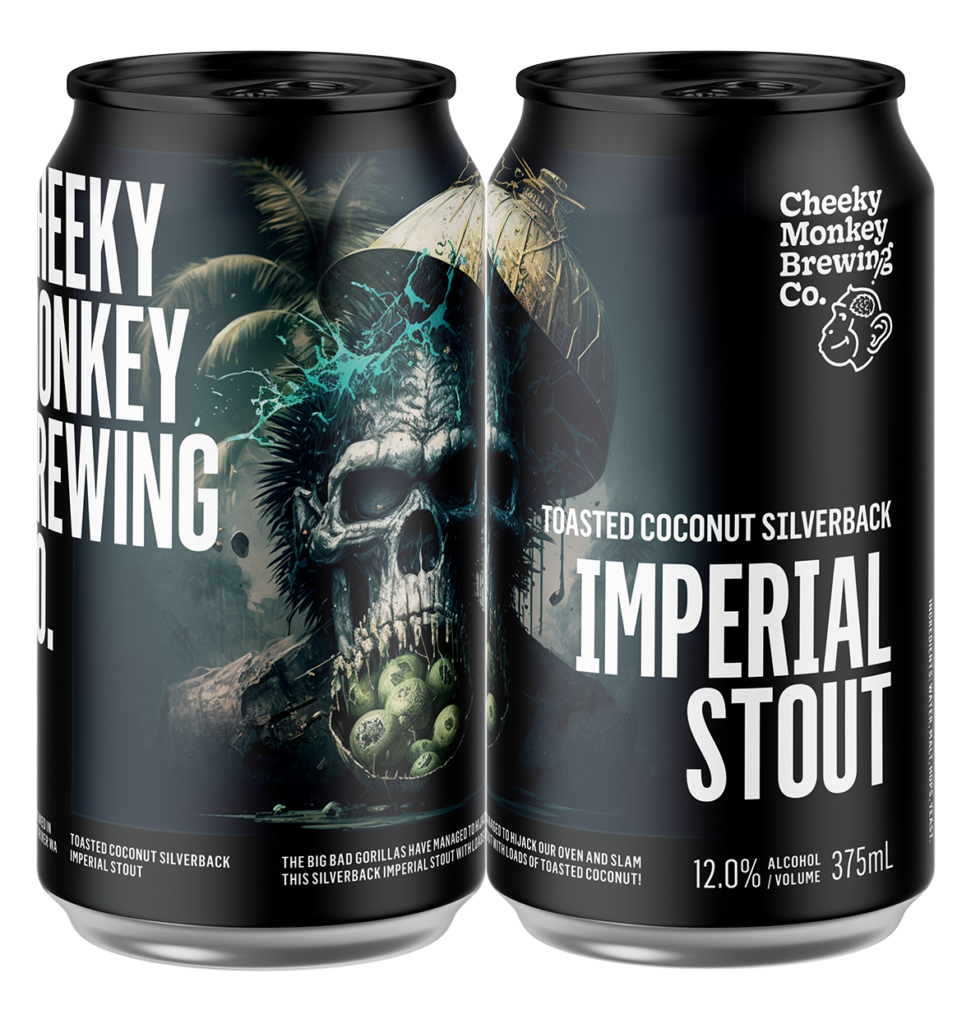Beer Education
Breaking Down the Richness: A Guide to the Different Types of Stout Beers
Thick, dark, and full-bodied, stout beers embody a richness that beer enthusiasts can’t resist. With their robust flavours and creamy textures, stouts have earned a special place in the hearts (and pint glasses) of beer lovers worldwide. But did you know that not all stouts are created equal? In fact, there are several different types of stout beers, each with its own distinct characteristics and brewing traditions.
From the classic Irish dry stout to the velvety smoothness of milk stouts and the bold flavours of imperial stouts, this guide will break down the complexities of stout beer styles, helping you navigate the vast world of dark brews with confidence. Whether you’re a seasoned stout aficionado or just dipping your toes into the dark beer scene, this article will be your go-to resource for understanding the various types of stout beers and finding your perfect match. So, grab a glass, savour the darkness, and let’s explore the rich and diverse world of stout beers together.
Table of Contents
History and origins of Stout Beers
Stout beers have a long and intriguing history that dates back to the late 17th century. The term “stout” originally referred to strong porter beers, which were popular among the working class in London. These beers were brewed with a higher alcohol content and were known for their rich, roasted flavours.
One of the most iconic stout beers, Guinness, has roots that can be traced back to 1759 when Arthur Guinness established his brewery in Dublin, Ireland. Guinness quickly became synonymous with Irish stout, thanks to its unique brewing process and distinctive taste.
Over the years, stout beers have evolved and diversified, with different regions and breweries putting their own spin on the style. From the birthplace of stout in Ireland to the craft beer revolution in the United States, stout beers have become a global phenomenon, cherished by beer enthusiasts around the world.
Understanding the different types of Stout Beers
Stout beers can be categorised into several distinct styles, each with its own characteristics and brewing techniques. Understanding the differences between these styles will not only enhance your appreciation of stout beers but also help you find the perfect brew for your palate.

Irish Stout: Guinness and beyond
When it comes to stout beers, the Irish have truly made their mark on the brewing world. The most famous example of an Irish stout is, of course, Guinness. With its jet-black color, creamy head, and a distinct roasted flavour, Guinness has become synonymous with the style. But there’s more to Irish stouts than just Guinness.
Irish dry stouts, like Guinness, are known for their dry and roasted flavour profiles. They often have a hint of coffee or dark chocolate, with a smooth and creamy mouthfeel. The use of roasted barley gives these stouts their characteristic dark color and distinctive aroma. Other notable Irish stouts include Murphy’s Irish Stout and Beamish Irish Stout. These stouts are perfect for those who enjoy a dry and balanced beer that pairs well with hearty pub fare.
Dry Stout vs. Sweet Stout
While Irish dry stouts dominate the stout beer scene, there is another style that offers a sweeter alternative – the sweet stout. Also known as milk stout or cream stout, this style has a smoother and slightly sweeter taste compared to its dry counterpart. The use of lactose, a type of sugar derived from milk, gives these stouts their characteristic sweetness and creamy texture.
Sweet stouts often have flavours reminiscent of chocolate, caramel, and sometimes even vanilla. They are less bitter than dry stouts and have a fuller body. One of the most famous examples of a sweet stout is the iconic Mackeson XXX Stout, known for its rich and velvety texture. Sweet stouts are a great choice for those with a sweet tooth or those looking for a dessert-like beer experience.
Foreign Stout: exploring international variations
As stout beers gained popularity around the world, different countries put their own spin on the style, resulting in the creation of foreign stouts. These stouts often have higher alcohol content and more intense flavours compared to their Irish counterparts. They can vary in terms of sweetness, bitterness, and overall flavour profile.
For example, Jamaican and Caribbean stouts are known for their rich and fruity flavours, with hints of molasses and tropical fruits. Nigerian stouts, like Guinness Foreign Extra Stout, are stronger and more robust, with a higher alcohol content. These stouts are often exported to warmer climates and have a more pronounced hop bitterness to withstand the heat.
American Stout: a bold and hoppy twist
In true American fashion, American stouts take the traditional stout style and add a bold and hoppy twist. These stouts often showcase a more aggressive hop presence, resulting in a beer with a stronger bitterness and a more pronounced hop aroma. American stouts can also have flavours of dark chocolate, coffee, and roasted malts, similar to their Irish counterparts.
What sets American stouts apart is their emphasis on hop flavours and aromas. This makes them a great choice for those who enjoy a hoppier beer experience and want to explore the intersection of stout and IPA styles. Notable examples of American stouts include Sierra Nevada Stout and North Coast Brewing’s Old Rasputin.
Imperial Stout: the king of Stouts
When it comes to bold and robust flavours, nothing beats an imperial stout. Also known as Russian imperial stout, this style originated in England but gained popularity in Russia during the 18th century. Imperial stouts are characterized by their high alcohol content, often exceeding 8% ABV, and their intense flavours of roasted malt, dark chocolate, and coffee.
These stouts are full-bodied, complex, and often age well, allowing the flavours to mellow and blend over time. They can also have additional flavour additions like vanilla, oak, or even barrel aging. Founders Brewing’s Kentucky Breakfast Stout (KBS) is a renowned example of an imperial stout, known for its bold flavours and smooth finish. Imperial stouts are the perfect choice for those who enjoy a strong and flavourful beer that demands attention.
Milk Stout: the creamy and smooth delight
If you’re looking for a stout with an extra dose of creaminess and smoothness, then milk stouts are for you. Also known as sweet stouts, milk stouts are brewed with lactose, a type of sugar derived from milk. This addition gives the beer a rich and velvety texture, similar to drinking a glass of milk.

Milk stouts often have flavours of chocolate, coffee, and caramel, with a slightly sweet finish. They are less bitter than their dry stout counterparts and have a fuller body. Left Hand Brewing’s Milk Stout Nitro is a popular example of a milk stout, known for its creamy mouthfeel and smooth flavour profile. Milk stouts are the perfect choice for those who enjoy a sweeter and more indulgent beer experience.
Pairing Stout beers with food
Stout beers are incredibly versatile when it comes to food pairings. Their robust flavours and creamy textures make them an excellent match for a wide range of dishes. Here are a few pairing suggestions to elevate your stout beer experience:
– Roasted Meats: The rich and smoky flavours of roasted meats, such as grilled steak or slow-cooked barbecue, complement the roasted malt flavours of stout beers perfectly. The boldness of the beer helps cut through the richness of the meat, creating a harmonious balance of flavours.
– Dark Chocolate: Stout beers and dark chocolate are a match made in heaven. The bitter sweetness of the chocolate enhances the roasted flavours of the beer, creating a delightful combination. Try pairing a milk stout with a piece of dark chocolate for a decadent treat.
– Cheeses: Stout beers pair exceptionally well with a variety of cheeses. The creamy and slightly sweet nature of milk stouts complements the tanginess of blue cheeses, while the bold flavours of imperial stouts hold their own against sharp cheddar or aged gouda.
– Desserts: The sweet and dessert-like qualities of milk stouts make them an ideal choice for pairing with desserts. From chocolate cakes to creamy caramel puddings, milk stouts add depth and richness to any sweet treat.
In conclusion, stout beers offer a world of rich and diverse flavours that can satisfy even the most discerning beer enthusiasts. From the classic Irish dry stout to the bold and hoppy American stout, each style brings its own unique characteristics to the table. So, the next time you find yourself in the mood for a beer that’s full-bodied and packed with flavour, don’t hesitate to explore the wonderful world of stout beers. Cheers to the darkness!




